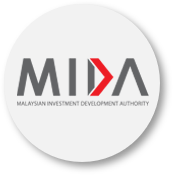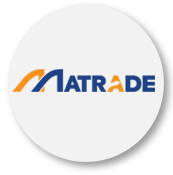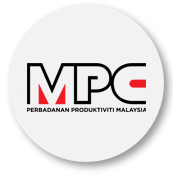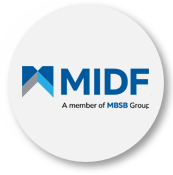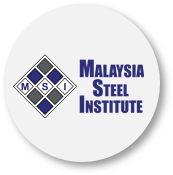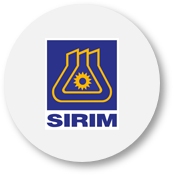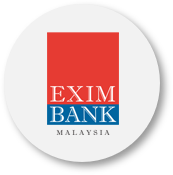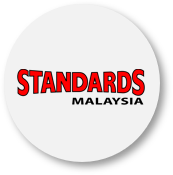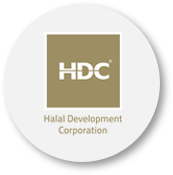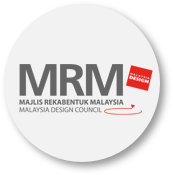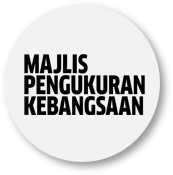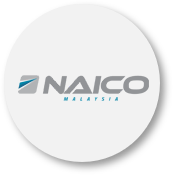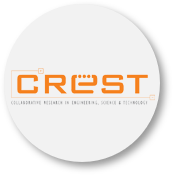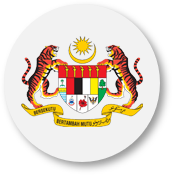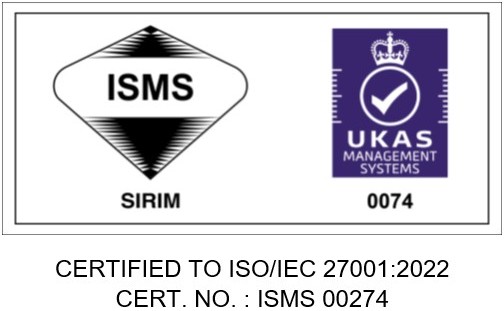Overview
As the Malaysian economy matures and the nation veers towards becoming a developed nation, the services sector begins to assume a greater role. This is true of all developed countries. As such it only stands to reason that this sector becomes the target for investment , domestic or otherwise.There are 12 sectors classified under services and each of these sectors has their respective World Trade Organisation (WTO) classification which defines their scope.
Business
A vibrant business services sector generates significant multiplier effects which will inevitably raise job opportunities and the overall productivity across the economy.
Malaysia's commitment to liberalise this sector are in terms of market access and movement of natural persons (MNP). In tandem with this, providing capacity building for Malaysian service providers is also undertaken to equip them to participate in the liberalisation exercise .
The principles of trade in services of all sectors are contained, in the General Agreement on Trade in Service (GATS).
The WTO classification for this sector are :
1. Professional Services
What a service provider needs to know?
As a service provider of this sector, you may be interested in the following :
- The relevant Acts that govern these services;
- The Regulatory agency/agencies;
- The liberalisation initiatives and specific service sector commitments that Malaysia has entered into
- The services under this sub sector that will be dealt with are :
Legal
Services in this sub sector comprise :
- advice and representation in civil, criminal and other cases.
- activities in connection with patents and copyrights, with the preparation of deeds, wills, trusts, etc., and
- activities of notary public, arbitrators, examiners and referees.
The Acts
The Legal Professional Act 1976 (Act 166) and the Legal Profession (Practice and Etiquette) Rules, 1978 are essentially the two that set out the rules that govern this service.
The Regulatory Agency
It is the Bar Council of Malaysia that regulates this professional service. This being the case, the provision of legal services in the State of Sabah is regulated by the Advocates Ordinance of Sabah while in Sarawak it is regulated by the Advocates Ordinance of Sarawak.
To set up a practice in the legal service, it is a pre-requisite that one is required to possess the Annual Certificate (AC) from the Bar Council of Malaysia and a Practising Certificate (PC) from the High Court of Malaya.
Both these certificates are required to be renewed every year before 31 December of the year which is when the certificates expire.
Liberalisation Initiatives
In 2011, the PM announced that legal services is an area that would be autonomously liberalised to allow foreign practitioners to practise in Malaysia. With the recently amended Legal Professional Act, foreign lawyers will be able to practise in some areas in the legal fraternity after the guideline to practise is finalised. Currently, the Attorney General Chambers together with the Bar Council are formulating the guideline.
Specific Service Commitments
All specific commitments by Malaysia under GATS and the ASEAN Framework Agreement on Services (AFAS) as well as bilateral trade agreements are under Mode 3 (Commercial Presence) where foreign legal services suppliers are only allowed to practise in offshore corporations established in the Federal Territory of Labuan, Malaysia.
In Malaysia, expatriates are not allowed to practise as one of the requirements for admission as an advocate and solicitor in Malaysia is that one must be either a citizen or a permanent resident of Malaysia.
This is also reflected in bilateral FTAs commitments with Japan (MJEPA); New Zealand (MNZFTA); Pakistan (MPCEPA) and India (MICECA) as well as in the ASEAN Australia New Zealand (AANZFTA) and ASEAN-Korea (AKFTA).
Accounting, Auditing, Bookkeeping & Taxation Services
Accountancy firms are fast becoming versatile in their services as, apart from their core activities of accounting and auditing, they also provide a range of services such as merger audits, insolvency services, tax advice, investment services and management consulting.
The demand for accountancy services are predominantly from enterprises that require mandatory compliance in terms of financial reporting.
Accounting, book-keeping, auditing and tax consultancy services include activities involving:
-
recording of commercial transactions for business or others,
-
preparation of financial accounts;
-
examination of these accounts and the certification of their accuracy
-
preparation of personal and business income tax returns; and
-
related advisory activities and representation (other than legal representation) before tax authorities.
All providers of this service must fulfil certain registration requirements:
-
Registration with Companies Commission of Malaysia ( CCM)
A local incorporated accountancy consultancy practice must have registered with the Companies Commission of Malaysia (CCM). -
Foreign service providers can practice only if they have incorporated with a local company or have registered the company in Malaysia with CCM, following the same procedure as that of a locally incorporated company.
-
Registration with the Malaysian Institute of Accountants (MIA)
-
MIA is the regulatory body that governs practice of accounting and auditing in Malaysia and any accounting practice must hold a valid practising certificate issued by MIA.
-
Foreign professionals in this service need to be registered with the MIA as well, with the additional requirement of passing a qualifying examination conducted by MIA to determine competency and ability.
The Acts
- Accountants Act, 1967
- Income Tax Act 196 (Revised 1971)
- Institute's (Membership and Council) Rules 2001
- Institute's (Disciplinary) Rules 2001
- Institute's Qualifying Examination Rules 2001
- Institute's By-Laws (On Professional Ethics, Conduct and Practice)
Apart from the above Acts, there are related regulations that services providers need to be aware of :
- Companies Act 1965
- Banking and Financial Institutions Act 1989
- Co-operative Societies Act 1993
- Capital Markets and Services Act 2007
- Securities Commission Act 1993
- Rules and Listing Requirements of Bursa Malaysia Securities Berhad
- Anti-Money Laundering Act 2001
Liberalisation Initiatives
Accounting and taxation services are the areas that PM had announced to be autonomously liberalised. Starting January 2012, foreign practitioners are allowed to establish an entity in Malaysia having 100% ownership.
Specific Service Commitments
Under GATS, any commercial presence is only through a locally registered partnership with Malaysian accountants or Malaysian accounting firms with foreign equity not exceeding 30 per cent.
There are commitments made under Mode 4 (presence of natural persons) where professionals who possess the necessary academic credentials, professional qualifications, experience and/or expertise which have been duly recognized by the professional bodies in 24. Malaysia and registered with those respective professional bodies can enter and stay for a duration of not more than a total of five years.
The same applies to Malaysia's commitment under AFAS under Mode 3 (Commercial presence), except that foreign equity is allowed up to 51 percent.
Under Mode 4, in AFAS, 8 specialists/experts for each institution, subject to registration with MIA and fulfilment of residency requirements is allowed. Entry shall be limited to a maximum period of two years, subject to domestic regulations.
Malaysia's commitments under Bilateral FTA for Mode 3 are the same as under GATS and AFAS with the aggregate foreign equity not exceeding the figures that follow and with the respective countries :
- MJEPA : 35%
- MNZFTA : 40%
- MPCEPA : 40%
- MICECA : 49%
There are two Regional FTAs, the AANZFTA and the AKFTA in which foreign equity has been set to not exceed 40 percent.
Architectural
Architectural consultancy services would mean the provision of architectural consultancy advice and services pertaining to all or any of the following:
- submission of plans or drawings to any person or local authority in Malaysia;
- conceptualisation, research and development of any design for the built environment;
- any survey, preparation of reports including environmental impact assessment reports, or investigation relating to the built environment;
- project programming, construction and manufacturing programming, and product design;
- planning and development services including interior design, financial advisory services, project management, contract administration and landscaping;
- preparation of feasibility studies and cost estimates;
- preparation of plans and other means of presentation; and
- any other activities relating to the creation, preservation and enhancement of the built environment
The Acts
- Architects Act 1967;
- Architects Rules 1996; and
- Code of Professional Conduct for Professional Architects.
The Regulatory Agency
- The Architects Act 1967 regulates and governs architectural services. The registration process for a Professional Architect is subject to the Architects Act 1967, as well as the rules specified in the Architects Rules 1996.
- The Board of Architects Malaysia
This Board assumes a vital role in regulating this professional services. One of their primary roles is to maintain the Register of Professional Architects, Building Draughtsmen and architectural consultancy practices. In addition, the Board helps develop and promote the profession by managing accreditation of architectural programmes and by being the body that conducts examinations for prospective members of the profession.
Any company or individual intending to practise architectural consultancy in Malaysia needs to be registered with the Board. A sole proprietorship or a partnership must consist of professional architects. To register as a ‘Professional Architect', the individual must fulfil the following conditions. He/She must
- Be a citizen or permanent resident of Malaysia;
- Be a registered Graduate Architect; (one whose qualification is recognised by the Board).
- Have obtained the practical experience as prescribed by the Board;
- Have passed the Part III Professional Examination; and
- Be a Corporate Member of the Malaysian Institute of Architects (PAM).
Liberalisation Initiatives
As announced by the PM in 2011, architectural services will be autonomously liberalised once the relevant Act has been amended. With the amendments foreign practitioners will be allowed to have 100% ownership.
Currently, foreign architects who intend to practise must apply for temporary registration with The Board, and must possess :
- the necessary qualification recognised for the practice of architecture as an architect in the country where he normally practises; and
- the necessary expertise and his/her physical presence is required in Malaysia for not less than one hundred and eighty days in one calendar year or that he/she is a resident representative of the foreign component of a joint-venture.
The Board may approve a temporary registration for a period not exceeding one calendar year and may renew such temporary registration as it deems fit.
Foreign professionals can only be registered as Temporary Architects, and are only allowed to hold up to 30% foreign equity in an architectural firm. However, they cannot hold the directorship of an architectural firm.
Specific Service Commitments
Under GATS, the specific commitments and limitations are as follows:
- In terms of Limitations on National Treatment, for Modes 1 (Cross Border Supply) & 2 (Consumption Abroad), architectural services must be authenticated by a registered professional architect in Malaysia.
- Under Market Access, Mode 3 (Commercial Presence) architectural services may only be supplied by a citizen or permanent resident of Malaysia.
- Under Mode 4 (Movement of Natural Persons ), only a foreign architect who is a consultant to a project wholly financed by a foreign government or implemented under a bilateral arrangement between governments subject to temporary registration will be given a period of one year temporary registration.
Under AFAS, there is a similar stipulation under Market Access, Mode 3
- that architectural services may be supplied only by a citizen or permanent resident of Malaysia; and
- that for multi-disciplinary practices (Architecture, Engineering and/or Quantity Surveying), foreign equity is allowed up to a maximum of 30 per cent for joint ventures by professionals who are registered in the country of origin.
Under Mode 4, 2 specialists/experts per country are allowed and registration is subject to qualification of registration and domestic regulations. Temporary registration is on an annual basis and renewal subject to domestic regulations.
In Bilateral FTAs with Japan (MJEPA), Pakistan (MPCEPA), New Zealand (MNZFTA) and India (MICECA), the commitment is via Mode 3 where for multi disciplinary practices (MDP), i.e. architecture, engineering and/or quantity surveying), foreign equity is up to a maximum of 30 per cent for joint ventures by professionals who are registered in the country of origin.
The same applies to the ASEAN - China (ACFTA) and the ASEAN-Australia/New Zealand (AANZFTA) except for ASEAN-Korea regional FTA (AKFTA), where the equity is only 10 per cent.
Engineering
This sub sector includes any corporate body, incorporated under the Companies Act 1965, that provides professional engineering services.
Professional engineering services would include engineering services and advice in connection with any feasibility study, planning, survey, design, construction, commissioning, operation, maintenance and management of engineering works or projects and includes any other engineering services approved by the Board.
The Acts
- Registration of Engineers Act 1967;
- Registration of Engineers Regulation;
- Companies Act 1965;
- Washington Accord.
The Regulatory Agency
The Board of Engineers Malaysia's (BEM) primary role is to facilitate the registration of engineers and to regulate the professional conduct and practice of registered engineers in order to safeguard the interest of the public.
A graduate engineer is required to have had three years of experience in order to be entitled to apply for registration as a Professional Engineer.
To register yourself as a professional engineer, you must have had practical experience and must have sat for the Professional Assessment Examination (PAE).
Liberalisation Initiatives
As announced by the PM in 2011, engineering services will be autonomously liberalised once the relevant Act has been amended. With the amendments foreign practitioners will be allowed to have 100% ownership.
Specific Service Commitments
Under GATS, the specific commitments and limitations are as follows:
- In terms of Limitations on National Treatment, for Modes 1 (Cross Border Supply ) & 2 ( Consumption Abroad ), engineering services must be authenticated by a registered professional engineer in Malaysia.
- Under Market Access, Mode 3 ( Commercial Presence) engineering services may be supplied only by a citizen or a permanent resident of Malaysia.
- Under Mode 4 (Movement of Natural Persons ), a foreign engineer who is a consultant to a project wholly financed by a foreign government or implemented under a bilateral arrangement between governments subject to temporary registration will be given a period of one year per temporary registration.
Under AFAS, there is a similar stipulation under Market Access, Mode 3
- that architectural services may be supplied only by a citizen or a permanent resident of Malaysia ; and
- that for multi-disciplinary practices (Architecture, Engineering and/or Quantity Surveying), foreign equity up to a maximum of 30 per cent for joint ventures by professionals who are registered in the country of origin.
Under Mode 4, 2 specialists/experts per country is allowed and registration is subject to qualification of registration and domestic regulations. Temporary registration is on an annual basis and renewal subject to domestic regulations.
In the Bilateral FTA with Japan (MJEPA), the commitment is via Mode 3 where for multi disciplinary practices (MDP), i.e. architecture, engineering and/or quantity surveying), foreign equity is up to a maximum of 10 per cent for joint ventures by professionals who are registered in the country of origin.
In the MNZFTA and MICECA, for MDP, the foreign equity is up to a maximum of 30 percent and for MPCEPA, it is 40 percent.
In the ASEAN-China FTA (ACFTA), as well as in the ASEAN-Korea FTA (AKFTA), Malaysia has allowed for up to 10 percent foreign equity. In the AANZFTA, the foreign equity for MDP is 30 percent.
In all bilateral and regional FTAs, foreign directorship is not allowed.
2. Computer & Related services
3. Research & Development services
4. Real Estate services
5. Rental/Leasing Services without Operators
6. Other business services, such as advertising & management consulting among others
Communication
What a service provider needs to know
As a service provider of this sector, you may be interested in the following :
- The relevant Acts;
- The Regulatory agency/agencies;
- The liberalisation initiatives and specific service sector commitments that Malaysia has entered into.
The Regulatory Body
- The Ministry of Communications and Multimedia (MMCC) is the custodian while the Malaysian Communications and Multimedia Commission (CMC) is the regulatory body whose key role it is to implement and promote the Government’s national policy objectives for the communication and multimedia sector.
- The CMC is also responsible for overseeing the new regulatory framework for the converging telecommunications and broadcasting industries and on-line activities in 2001, the CMC’s role was expanded to include overseeing the postal service sector pursuant to the Postal Services Act 1991 and licensing of the Certification Authorities under the Digital Signature Act 1997.
Specific service commitments
Under GATS and AFAS, for telecommunications and audio visual services, in terms of market access, commercial presence is only through a locally incorporated Joint Venture corporation with Malaysian individuals or Malaysian – controlled corporations or only through acquisition of shares of an existing licensed operator. Foreign companies are entitled to acquire only up to a 30% equity stake.
Malaysia has not made any commitments for postal and courier services.
The WTO classification for this sector are :
- Postal services & Courier services(including express delivery )
This is a rapidly growing area which is assuming a key role in the supply chain management and logistics. This sub - sector has undergone market-oriented reforms in most countries including Malaysia where public postal operators have been corporatised and/or privatised.
The Acts
- The Postal Services Act 1991 (Act 465); and
- The Postal Services ( Successor Company) Act 1991 (Act 466)
Postal services are currently supplied by Pos Malaysia Bhd (PMB) while there are 113 courier service companies. Pos Laju is PMB's courier service arm and they control around 27% of the market share for domestic courier services.
Approximately 70% of the courier domestic market is dominated by foreign courier service providers.
- Telecommunication services
Telecommunications services are a global market worth over US$ 1.5 trillion in revenue. Mobile services account for approximately 40% of this, while mobile subscribers worldwide currently outnumber the use of fixed telephone lines by more than two to one.
The telecommunication industry contributed 23.8 billion or 4.9% to the GDP in 2010.A service provider of this sub sector must possess one of three (3) following types of licences , each of which can either have an individual or class licence.
i) Network Facilities Provider Licence ( NFP);
Owners of facilities such as satellite earth stations, broadband fibre optic cables, telecommunications lines and exchanges, radio communications transmission equipment, mobile communications base stations, and broadcasting transmission towers and equipment require the NFP licence.
ii) The Network Service Provider Licence (NSP);
With this licence you can
- provide the basic connectivity and bandwidth to support a variety of applications;
- have Network services enabling connectivity or transport between different networks; and
- be the owner of the network facilities. Connectivity service may also be provided by a person using network facilities owned by another.
iii) The Application Service Provide Licence (ASP).Applications services are essentially the functions or capabilities, which are delivered to end-users.
The ASP licence allows you to provide particular functions such as voice services, data services, content-based services, electronic commerce and other transmission services.i) Individual Licence
This licence cannot be applied for by:
- a foreign company;
- an individual or a sole proprietorship;
- a partnership; and
- any such other persons or classes of persons as may be decided by Minister from time to time.
ii) Class Licence
This licence cannot be applied for by:
- a foreign individual who is not a permanent resident; and
- a foreign company as defined under the Companies Act 1965.
iii) The Acts
- The Telecommunication Services (Successor Company) Act 1985 (Act 322);
- The Malaysian Communications and Multimedia Commission Act 1998 (Act 589);
- The Communications and Multimedia Act 1998 (Act 588);
- The Electronic Commerce Act;
- The Electronic Government Activities Act; and
- The Personal Data Protection Act.
- Audio visual services
Audiovisual services covers motion picture and video tape production and distribution services, motion picture projection services, radio and television services, radio and television transmission services, and sound recording.
Liberalisation Initiatives
In 2011, the PM announced the autonomous liberalisation of the telecommunications and courier services with maximum foreign equity according to the category of services as follows :
|
Sub sector |
License category |
Maximum Foreign Equity |
|
Telco |
NSP |
70 per cent |
|
Telco |
NFP |
70 per cent |
|
Telco |
ASP |
100 per cent |
|
Courier Services |
Perkhidmatan Kurier |
100 per cent |
Construction & Related Engineering
The WTO classification for this sector covers
-
General construction work for buildings;
-
General construction work for civil engineering;
-
Installation and assembly work;
-
Building completion and finishing work; and
-
Others
The Construction Industry Master Plan (CIMP) 2006 – 2015, is a comprehensive plan charting the strategic position and future direction of the Malaysian construction industry over the next 10 years i.e. from 2006 – 2015. The focus is to make this sector more productive, more effective, more technologically pervasive, less labour intensive and more confident to venture beyond the local shores and thus become more resilient.
This sector has been targeted for greater development and promotion in the 10th Malaysia Plan (10MP – 2011 to 2015). The 10MP aims to propel the construction related sector and will provide support such as market intelligence, networks and government-to-government relations to enable firms to export construction related professional services to the ASEAN region, India and China as well as the member countries of the Organisation of Islamic Conference (OIC).
The construction sector is the foundation for other sectors to build their activities as it helps to generate huge economic linkages and create a multiplier effect on other economic sectors and SMEs including the financial, banking, insurance, transportation and manufacturing services.
SMEs form the backbone of the economy therefore promoting domestic – led growth is essential in strengthening the resilience of the economy and in driving Malaysia toward its target of attaining developed nation status in 2020.
Potential growth areas identified for the development of SMEs are:
-
civil engineering (metal works, electrical works, plumbing, sewerage and sanitary works, refrigeration and air conditioning works, painting works, carpentry, tiling and flooring, and glass works). To adopt a clustering approach in bidding for projects by combining complementary skills and expertise, especially in civil engineering;
-
residential and non-residential construction; and
-
infrastructure.
The construction sector is expected to undergo structural changes which include:
-
consolidation and integration of business to reap greater economies of scale;
-
extension of linkages along the value chain; and
-
promotion of new concepts in retailing and consumerism.
As a services provider, you will need to know the following:
-
The rules and regulations that govern the construction sector;
-
The Regulatory agency/agencies;
-
The specific service sector commitments that Malaysia has entered into.
The Acts
-
The Federal Roads Act 1959;
-
The Quantity Surveyors Act;
-
The Registration of Engineers Act;
-
The Architects Act;
-
The Malaysian Highway Authority Act;
-
The Construction Industry Development Board Act;
-
The Federal Roads Act 1984 ( private management);
-
The Road Transport Act; and
-
The Town Planners Act 1995.
The Regulatory Agencies and Related Associations
The Ministry of Works is responsible for the construction industry. The Construction Industry Development Board of Malaysia (CIDB), under the MOW, is tasked with promoting the construction services sector, as well as take on the role of coordinating and monitoring the overall progress of the implementation process of the CIMP.
All construction companies must be registered with the CIDB and they regulate and register contractors from 7 grades (G1 – G7).
Other related regulatory agencies and associations are :
-
The Board of Architects;
-
The Board of Engineers Malaysia (BEM);
-
The Board of Quantity Surveyors Malaysia (LJBM);
-
The Institution of Engineers Malaysia (IEM);
-
The Malaysian Institute of Architects (PAM);
-
The Institution of Surveyors Malaysia (ISM);
-
The Master Builders Association Malaysia (MBAM); and
-
The Association of Consulting Engineers Malaysia (ACEM).
Specific Service Commitments
Commitments in the construction sector are in the areas specified below with the following specific CPC codes, as in the WTO classification.
CPC 511 : Pre-erection Work at Construction Site
CPC 512 : Construction Work for Buildings
CPC513 : Construction Work for Civil Engineering
CPC 514 : Assembly and Erection of Prefabricated Constructions
CPC 515 : Special Trade Construction
CPC 516 : Installation Work
CPC 517 : Building Completion and Finishing Work
Under GATS, Malaysia' s commitments are for CPC code 511 – 517 in terms of market access and is limited to Mode Supply 3 ( Commercial presence) covering a representative office, regional office, or locally incorporated joint-venture corporation with Malaysian individuals or Malaysian-controlled corporations or both with foreign equity not exceeding 30 per cent.
Malaysia's commitment under 8th AFAS package is for market access only through a representative office, regional office or locally incorporated joint venture corporation with Malaysian individuals or Malaysian controlled corporations or both, with foreign equity not exceeding 51%. However, ASEAN leaders have given their commitment to liberalise this sector up to 70% by 2015 in line with the formation of the ASEAN Economic Community (AEC) .
Regionally, there are commitments in the construction sector with dialogue partners :
-
ASEAN - Korea Free Trade Agreement (AKFTA)
Market access is only through a representative office, regional office or locally incorporated joint venture corporation with Malaysian individuals or Malaysian controlled corporations or both with the aggregated foreign shareholding in the joint venture corporation not exceeding 30%. -
ASEAN - Australia - New Zealand Free Trade Agreement (AANZFTA)
Market access is under the following conditions :-
a representative office, regional office or locally incorporated joint venture corporation with Malaysian individuals or Malaysian controlled corporations or both. Aggregated foreign shareholding in the joint venture corporation shall not exceed 49%;
-
Foreign construction companies that are not locally incorporated may carry out the following construction projects jointly with local contractors, on project-by-project basis:
-
-
Construction projects wholly financed by foreign investment and/or grants;
-
Construction projects financed by loans of international tendering according to the terms of loans;
-
Projects with foreign investment equal to or more than 50 per cent where local expertise is not available; and
-
100% Malaysian funded construction projects where local expertise is not available.
All of the above are subject to compulsory subcontracting to local subcontractors.
Bilateral Free Trade Agreements (FTAs)
Malaysia has made the same commitments in the following bilateral FTAs under the construction section in terms of market access:
-
Malaysia - Pakistan Closer Economic Partnership Agreement (MPCEPA)
-
Malaysia - New Zealand Free Trade Agreement (MNZFTA)
-
Malaysia - Japan Economic Partnership Agreement (MJEPA)
-
Malaysia - India Comprehensive Cooperation Agreement (MICECA)
Distribution
Distribution services include wholesalers, retailers, franchise practitioners, direct sellers and suppliers, who channel their goods in the domestic market, and commission agents or other representatives including those of international trading companies.
The sector has also been identified as one of the potential growth areas for the development of SMEs.
The Ministry of Domestic Trade, Consumerism and Cooperatives (MDTCC) has formulated the Distributive Trade Master Plan which includes strategies that will develop the distribution services.
The WTO classification for this sector covers :
-
Commission agents' services
-
Wholesale trade services
-
Retailing services
-
Franchising
-
Others
What a service provider needs to know
If you are a service provider of this sector, you may be interested in the following :
-
The relevant Acts;
-
The Regulatory agency/agencies;
-
The liberalisation initiatives and specific service sector commitments that Malaysia has entered into.
The Acts
-
Companies Act 1965
-
Convention on the Settlement of Investment Disputes Act 1966
-
Trade Marks Act 1976
-
Promotion of Investment Act 1986
-
Direct Selling Act 1993
-
Merchant Shipping (Oil Pollution) Act 1994
-
Franchise Act 1998
-
Direct Sales (Scheme and conduct) Regulations 2001
-
Guidelines on Foreign Participation in the Distributive Trade Services (2010)
The Regulatory Agency/Agencies & Related Associations
-
Ministry of Domestics Trade, Co-operatives and Consumerism (MDTCC);
-
Companies Commission of Malaysia (CCM);
-
Perbadanan Nasional Berhad (PNS);
-
Malaysian Franchise Association (MFA);
-
Malaysian Direct Distribution Association (MDDA);
-
Direct Selling Association of Malaysia (DSAM);
-
Malaysian Retailers Association (MRA);
-
Malaysian Retailer-Chains Association (MRCA); and
-
Federation of Sundry Goods Merchants' Association.
Liberalisation Initiatives
Generally, 100% foreign equity is allowed in most activities such as departmental stores, superstores, specialty stores and franchise. For hypermarkets, up to 70% foreign equity is allowed. However all these activities are subject to domestic regulations.
All proposals for distribution services activities have to obtain the approval of MDTCC. These include proposals for:
-
acquisition of interest;
-
mergers and/or takeovers by foreign participation;
-
opening of new branches/ outlets/ chain stores;
-
relocation of branches/ outlets/ chain stores;
-
expansion of existing branches/outlets/ chain stores;
-
buying over / taking over of outlets of other operators; and
-
purchase and sale of properties to operate distribution services activities prior to obtaining the approval / licence from local authorities and other agencies to operate distributive trade activities.
Specific service commitments
Malaysia has made commitments to allow foreign equity of up to 70 per cent in wholesale and retail and 30 per cent in franchising services under Malaysia-Pakistan FTA.
Under AFAS, commitments have been made to allow foreign equity of up to 51 per cent for
-
commission agents dealing in textile, clothing and footwear;
-
wholesale and retail; and
-
franchising services.
Education
Education has been identified as one of the services sectors for further growth and development in the 10th Malaysia Plan (10MP - 2011 to 2015)
The plan to develop education as a significant component of the services industry and to internationalise education as well as develop it as an export industry is reflected in the various liberalisation initiatives that have resulted in the proliferation of Private Higher Education Institutes (PHEIs).
The WTO classification for this sector covers :
- Primary education services
- Secondary education services
- Higher education services
- Adult education
- Other education services
The higher education services is driving the growth in this sector to position Malaysia as a leading destination for education.
What a service provider needs to know
As a service provider of this sector, you may be interested in the following :
- The relevant Acts that govern these services;
- The Regulatory agency/agencies;
- The liberalisation initiatives and specific service sector commitments that Malaysia has entered into.
The Acts
- The Education Act 1996
- The Private Higher Educational Institutions Act 1996
- Universities and University Colleges Act 1971;
- The National Council on Higher Education Act 1996
- Educational Institutes Act (Discipline ) 1976
- The National Accreditation Board Act 1996 (LAN)
- The National Higher Education Fund Board Act 1997
These Acts provide the legal framework for
- the establishment of twinning programmes between foreign and local institutions;
- the establishment of private universities, branch campuses of foreign universities; and
- the upgrading of existing colleges to universities.
The Regulatory Bodies/Agencies
The following regulatory bodies are responsible for approvals as well as for monitoring curricula and overseeing the quality of each educational institute.
They are
- The Ministry of Education (MOE);
- The Ministry of Higher Education (MOHE);
- The National Accreditation Board (LAN);
- The Malaysian Qualifying Agency (MQA);
Related associations are :
- The National Association of Private Education Institutions (NAPEI)
- The Malaysian Association of Private Colleges and Universities (MAPCU)
Liberalisation Initiatives
In 2012, foreign equity for international schools, technical and vocational schools (including for special needs) and private Universities is allowed up to 100 per cent, subject to approval from the Ministry of Education and/or the Ministry of Higher Education (MOHE).
Specific Service Commitments
Under GATS, commitments have been made for educational services other than for higher educational institutions allowing foreign equity not exceeding 49 per cent.
Under the 8th package of AFAS:
- in terms of market access, Mode Supply 3 (commercial presence) is allowed only through a joint venture with foreign equity not exceeding 51 per cent; and
- for Mode 4 (Presence of Natural Persons ), up to 10 lecturers are allowed for each privately funded higher education institution.
Under bilateral FTAs, Malaysia has made the commitments with Japan ( MJEPA ), Pakistan ( MPCEPA ), New Zealand (MNZFTA) and India (MICECA) for Other Higher Education Services privately funded. In this sub – sector, foreign equity is up to 49 per cent. The same applies for the regional FTAs with China ( ACFTA ), Australia – New Zealand ( AANZFTA ) and Korea ( AKFTA ).
There is an additional commitment under MNZFTA in the following sub – sectors:
- Primary education / General secondary education
- Technical and vocational secondary education
Currently, foreign equity not exceeding 51% is allowed but from December 2015, foreign equity not exceeding 70% will be allowed.
All commitments are subject to an economic needs test.
Environment
The environmental services has developed significantly, primarily due to growing environmental awareness and increasingly stringent environmental standards and regulations.
The WTO classification for this sector covers:
- Sewage services
- Refuse disposal services
- Sanitation and similar services
- Other services
In Malaysia, waste water treatment, refuse collection and disposal, or street cleaning are infrastructure services typically provided by public authorities.
What a service provider needs to know
As a service provider of this sector, you may be interested in the following :
- The relevant Acts that govern these services;
- The Regulatory agency/agencies;
- The liberalisation initiatives and specific service sector commitments that Malaysia has entered into.
The Acts
The National Environment Policy, Climate Change Policy and National Environmental Quality Act 1974 form the basis for environmental management in Malaysia.
The Department of Environment (DOE) is the agency that enforces the Environmental Quality Act while the Division of Environmental Management and Climate Change (BPASPI), The Ministry of Energy, Science, Technology, Environment and Climate Change (MESTECC) is responsible for the policies relating to environmental and climate changes reflected in the National Environmental Policy and the National Climate Change Policy.
Regulatory agencies
- Department of Director General of Lands and Mines;
- Department of Survey & Mapping Malaysia ; and
- The National Institute of Land and Survey ;
- The Forestry Department Peninsular Malaysia;
- The Forest Research Institute Malaysia; and
- The Minerals and Geoscience Department Malaysia
- Department of Environment; and
- Department of Wildlife & National Parks Peninsular Malaysia.
- Department of Irrigation and Drainage; and
- The National Hydraulic Research Institute of Malaysia.
Liberalisation Initiatives
Since 1 January 2012, 100% foreign equity is allowed for incineration services under autonomous liberalisation initiative.
Specific service commitments
Under AFAS, Malaysia has made commitments in environmental services in the following sub - sectors in with foreign equity not exceeding 51 per cent :
- Waste water management services ;
- Protection of ambient air ;
- Noise and vibration abatement ;
- Nature and landscape protection;
- Solid waste disposal services; and
- Private industrial waste management services.
Malaysia has made commitments in environmental services in bilateral FTAs with New Zealand and India for the following sub – sectors, with foreign equity not exceeding 30 per cent :
- Waste water management services ;
- Protection of ambient air ;
- Noise and vibration abatement ; and
- Nature and landscape protection.
Health Related & Social Services
International trade in health services is growing where we are witnessing health professionals moving to other countries, whether on a temporary or permanent basis, usually in search of higher wages and better working conditions.
The WTO classification for this sector covers
- Hospital services: According to the Private Healthcare Facilities Act and Services Act 1998 (Act 586) Malaysia, private hospital services refers to any premises, other than a Government hospital or institution, used or intended to be used for the reception, lodging, treatment and care of persons who require medical treatment or suffer from any disease or who require dental treatment that requires hospitalization. For Malaysia, Health Related and Social Services includes specialised medical and dental services for all specialties excluding services by general medical and dental practitioners
- Other Human Health Services: Ambulance services and residential health facilities would be covered here.
- Social Services
- Others
It does not include veterinary services and services provided by nurses, midwives etc. which would come under Professional Services.
What a service provider needs to know
As a service provider of this sector, you may be interested in the following
- The Relevant Medical Acts and Health Related Acts;
- The Regulatory agency/agencies;
- The liberalisation initiatives and specific service sector commitments that Malaysia has entered into.
The Acts
- Private Healthcare Facilities and Services Act 1998 (Act 586).
- Private Healthcare Facilities and Services (Private Hospitals and Other Private Healthcare Facilities) Regulations 2006 (P.U. (A) 138/2006) (Regulations).
- Medical Act 1971 (Act 50).
- Medical Regulations 1974.
- Dental Act 1971 (Act 510).
- Dental Regulation 1976
Liberalisation Initiatives
In 2012, the Prime Minister announced that private hospitals would be autonomously liberalised with up to 100 per cent foreign shareholding being allowed.
In the same announcement, foreign medical and dental specialists would be allowed to practise in private hospitals. To date, the former has come into effect while the latter is pending amendments to the relevant Acts.
Specific service commitments
Under GATS, with regard to Market Access, foreign equity is only through a locally incorporated joint-venture corporation with Malaysian individuals or Malaysian-controlled corporations or both with foreign shareholding in the joint-venture corporation not exceeding 30 per cent.
The joint-venture corporation can only operate a hospital with a minimum of 100 beds.
Under AFAS, health services allows 70 per cent foreign equity.
As for Specialised medical services, foreign specialists need to apply for temporary registration and have completed their internship abroad. They are to practice only in private hospitals of at least 50 beds. Specialised ‘stand alone' clinic by foreign investors are allowed pending amendments to the relevant Acts.
Specialised dental services, foreign dental specialists are allowed to practise for teaching purposes at both public & private universities. Specialised ‘stand alone' clinic by foreign investors are allowed pending amendments to the relevant Acts.
Malaysia has made commitments for private hospitals with foreign equity varying between 40 to 49 per cent bilaterally with the following countries :
- Japan (MJEPA);
- New Zealand (MNZFTA);
- Pakistan (MPCEPA); and
- India (MICECA).
The same commitments have been made regionally with China (ACFTA), Australia - New Zealand (AANZFTA) and Korea (AKFTA).
Tourism & Related Travel
This sector is one of the most dynamic economic services sectors, in terms of contributing to GDP, employment and generating foreign exchange.
An interesting aspect of this sector is the presence of cross - border movement of consumers, especially with the emergence of ‘new' tourist destinations, mostly in developing countries. This sector is labour-intensive and is invariably linked to many sectors of the economy, such as education and health, thus making this sector a vibrant one.
Under the 10th Malaysia Plan (10MP), tourism is targeted to:
- position Malaysia in the top 10 in terms of global tourism receipts;
- increase the sector's contribution by 2.1 times, contributing RM115 billion in receipts; and
- provide 2 million jobs in 2015.
The focus will be on attracting a larger share of high –end travellers and on capturing a higher share of the high - traffic segments, particularly from Russia, India, China and Middle East.
This sector has been earmarked for development and promotion, and the potential growth areas for the development of the SMEs are
- Hotels;
- Transportation;
- Eco-tourism;
- Agro tourism;
- Health Tourism ;and
- Edu tourism
The WTO classification covers :
- Hotels and restaurants ( including catering );
- Travel agencies and tour operators' services; and
- Tour guides' services.
What a service provider needs to know
As a service provider of this sector, you may be interested in the following :
- The relevant Acts that govern these services;
- The Regulatory agency/agencies;
- The liberalisation initiatives and specific service sector commitments that Malaysia has entered into.
The Acts
- Tourism Industry Act 1992;
- Malaysia Tourism Promotion Board Act 1992; and
- Tourist Vehicles Licensing Act 1999
Regulatory Agencies
- Ministry of Tourism (MOTOUR)
- Malaysia Tourism Promotion Board (MTPB);
- Islamic Tourism Centre (ITC);
- Malaysian Association of Hotels (MAH);
- Malaysian Association of Hotel Owners (MAHO);
- Malaysian Association of Tour and Travel Agents (MATTA);
- Malaysia Budget Hotel Association (MBSA); and
- Malaysian Chinese Tourism Association (MCTA).
Liberalisation initiatives
In 2009, six sub-sectors were liberalised to allow 100 per cent foreign equity participation:
- Theme Parks;
- Convention and Exhibition Centres (seating capacity of above 5,000);
- Travel Agencies and Tour Operators Services (for inbound travel only);
- Hotel and Restaurant services (4 and 5 star hotels only);
- Food Serving Services (4 and 5 star hotels only); and
- Beverage Serving Services for consumption on the premises (4 and 5 star hotels only).
Specific service commitments
Under GATS, market access for Hotels and Restaurants (for 4 and 5 star hotels only) is only through a locally incorporated joint-venture corporation with Malaysian individuals or Malaysian-controlled corporations with foreign shareholding not exceeding 30 per cent.
Under AFAS, the same applies except that the aggregate foreign shareholding in the joint venture corporation is up to 70 per cent. Commitments are also made for tourist guides ( Mode 4 ) where a temporary tourist guide licence is needed and this is subject to:
- passing the basic tourist guide course;
- attending an induction course and a language proficiency programme and have knowledge on Malaysia;
- receiving a working contract (full time) with any travel agency in Malaysia;
- having valid passport; and
- becoming a member of any tourist guide association approved by Ministry of Tourism.
Malaysia has made bilateral commitments with the following countries :
- Japan (MJEPA)
- hotel and restaurant services (4 and 5 star hotels only) with foreign equity not exceeding 30 per cent;
- Hotel lodging services (4 and 5 star hotels only ) with foreign equity not exceeding 35 per cent; and
- Travel agency and tour operator services with foreign equity not exceeding 30 per cent.
- New Zealand (MNZFTA) and Pakistan (MPCEPA)
- hotel and restaurant services (4 and 5 star hotels only) with foreign equity not exceeding 49 per cent;
- travel agency and tour operator services with foreign equity not exceeding 49 per cent;
- convention and exhibition management services with foreign equity not exceeding 49 per cent; and
- theme park with foreign equity not exceeding 49 per cent;
- India (MICECA)
- hotel and restaurant services (4 and 5 star hotels only) with foreign equity up to 100 per cent;
- travel agency and tour operator services with foreign equity up to 100 per cent;
- convention and exhibition management services with foreign equity up to 100 per cent; and
- theme park with foreign equity up to 100 per cent.
Regionally, Malaysia has made commitments with countries :
- ASEAN - China (ACFTA)
- convention and exhibition management services with foreign equity up to 100 per cent; and
- theme park with foreign equity up to 100 per cent.
- ASEAN - Australia - New Zealand (AANZFTA)
- hotel and restaurant services (4 and 5 star hotels only) with foreign equity not exceeding 49 per cent;
- travel agency and tour operator services with foreign equity not exceeding 49 per cent;
- theme park with foreign equity not exceeding 49 per cent;
- ASEAN - Korea (AKFTA)
- hotel and restaurant services (4 and 5 star hotels only) with foreign equity not exceeding 35 per cent;
- travel agency and tour operator services with foreign equity not exceeding 35 per cent;
- convention and exhibition management services with foreign equity not exceeding 35 per cent; and
- theme park with foreign equity not exceeding 35 per cent;
Transport
Generally, logistics services cover transportation, storage and handling of production inputs and finished products from producer to consumer.
Logistics is a significant component of a modern economy as it helps facilitate the flow of goods and personnel both within and beyond national borders.
It boosts productivity and competitiveness across industries and as demand on the business sector increases, the expectation on the logistics services intensifies.
Malaysia, with its open economy and increasing integration in the ASEAN, is well placed as a regional logistics hub.
Apart from involving in product handling and delivery from one point to another, the logistics services providers are also required to provide value added services to their clients, such as facilitation services, warehousing, packaging and etc.
International market access and local trade could be improved by reducing the cost and improving the quality of logistics and transport services.
Components of the logistics services are:
-
Land
Land transport is a very important link in logistics activities as it covers road and railway transport. -
Air
Air transport is typically used for the transportation of low volume, perishable items and high value products. -
Maritime
Maritime transport (shipping and port) plays an important role in international freight, particularly to transport bulky items such as crude oil and grains.
What a service provider needs to know
If you are a service provider of this sector, you may be interested in the following:
Regulatory Bodies and Related Associations
In 2007 the Malaysia Logistics Council was set up to serve as the focal point for the overall coordination of strategies, regulations and rules governing this sector. The other related bodies and associations are :
- Ministry of Transport (MOT);
- Department of Marine;
- Department of Civil Aviation;
- Suruhanjaya Pengangkutan Awam Darat (SPAD);
- Federation of Malaysian Freight Forwarders (FMFF);
- AirFreight Forwarders Association of Malaysia (AFAM);
- Logistic & Supply Chain Association of Malaysia (L-SCOM);
- Association of Malaysian Haulier (AMH) ;
- Malaysian Shipowners Association (MASA);
- Federation of Malaysian Port Operating Companies (FMPOC);
- Malaysia Institute of Transport (MITRANS); and
- Chartered Institute of Logistics and Transport.
Liberalisation Initiatives
Malaysia's Transport & Logistics commitments under AFAS and the WTO are primarily focused on transport and logistics. In addition to commitments made in trade agreements, five sub-sectors under Transport & Logistics have been autonomously liberalised to allow foreign equity participation since 22 April 2009:
- Class C Freight Transportation
- Rental/Leasing services of ships that excludes cabotage and offshore trades
- Rental of cargo vessels without crew (Bareboat Charter) for international shipping
- Maritime Agency services
- Vessel Salvage and Refloating services
Specific Service Commitments
Malaysia's commitments under GATS are in terms of market access and are as follows:
|
No. |
Sub-Sectors |
Status |
|
1. |
International maritime transportation services, excludes cabotage and government cargo
|
Only through a representative office, regional office or locally -incorporated joint - venture corporation with Malaysian individuals or Malaysian-controlled corporations or both and aggregate foreign shareholding in the joint -venture corporation shall not exceed 30 per cent.
|
|
2. |
Maritime Agency services |
|
|
3. |
Vessel salvage and refloating services except on inland waters |
Under AFAS, liberalisation has occurred in stages. Foreign equity participation has been increasing, from 49% in 2008 to 51% in 2010 and ultimately 70% in 2013. The areas that are included are the following:
- International maritime transportation services, excludes cabotage.
- Rental of cargo vessels with crew for international shipping.
- Rental of cargo vessel without crew (Bareboat Charter) for international shipping.
- Vessel salvage and refloating services (not applicable in harbour).
- Maritime Agency services.
- Maritime Cargo Handling services.
- Vessel salvage and refloating services.
- Storage and warehousing services.
(Covering private bonded warehousing services only). - Maritime freight forwarding services.
- Maintenance and repair vessels.
It must be noted that to register a vessel in Malaysia, the following conditions must be met:
- The owner of the vessel must be a Malaysian citizen or corporation incorporated in Malaysia;
- The majority shareholding must be held by Malaysians;
- The majority of the board of directors must be Malaysians; and
- The principal place of business is to be in Malaysia.
Integrated Logistics Services (ILS)
The main activities in the integrated logistics services (ILS) industry cover freight forwarding, warehousing, transportation and other related value added services such as distribution, procurement and supply chain management on an integrated basis.
Currently, companies undertaking ILS are eligible for PS or ITA. The objective of granting the ILS incentive is to create an efficient and competitive logistics industry to encourage the integration and consolidation of the various transport intermediaries along the logistics supply chain in Malaysia. In this regard, Malaysian companies are encouraged to expand and venture into higher value-added services to enable them to compete globally.
International Integrated Logistics Services (IILS)
The IILS scheme was mooted in 2008. The Government announced a major development in the logistics sector whereby access is given to International Integrated Logistics companies for Customs Agent Licence. This licence, which was previously restricted to domestic logistics service providers, is now open to International Integrated Logistics Services (IILS) providers without any restrictions on equity.
The Customs Agents licence will be issued to qualified IILS providers that provide integrated and seamless logistics services (door-to-door) along the logistics value chain as a single entity on a regional or global scale.
- Mr. Zakuan Abdul Halim
Parliament and International Division
Phone No : 03-8886 6170
Fax No: 03-8889 1544
Email : zakuan@mot.gov.my
- Mr. Mohammad Radzuan Mazlan
Air Division
Phone No : 03-8886 6045
Fax No: 03-8889 1566
Email : radzuan@mot.gov.my
- Ms. Elina Roslim
Maritime Division
Phone No : 03-8886 6365
Fax No: 03-8889 1618
Email : elinaroslim@mot.gov.my
Related links :
Last Updated 2019-05-08 06:28:48 by Azuna Hasbullah atau Abd Rahman







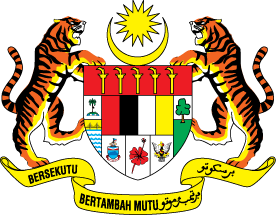





 Home
Home








